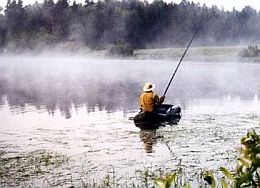EU – Baltic States, Legislation, Markets and Companies
International Internet Magazine. Baltic States news & analytics
Monday, 15.12.2025, 06:22
Fisheries remain vital in balanced managing of the Baltic Sea
 Print version
Print version |
|---|
BALTFIMPA will assist the Baltic Sea countries to fulfil their agreed obligations on adequate or sufficient conservation of Marine Protected Areas, especially by managing fisheries, informs project researcher (BALTFIMPA) Mr. Marco Milardi.
The Project’s ongoing inception phase will develop a decision support tool on the potential impacts of different fisheries activities and fishing gear on Baltic fauna and flora. The first sketch of the tool will be discussed in the Meeting. The later, larger-scale phase of the Project will investigate specific national cases of Marine Protected Areas, if in a need of suitable fisheries management measures. Selection of such MPA cases will be performed against criteria jointly agreed by fisheries and environment authorities participating in the Project.
The Project implements the commitments of the HELCOM Baltic Sea Action Plan (2007) and HELCOM Moscow Ministerial Declaration (2010), to study the impact of fisheries and then finding new solutions to mitigate it. Solutions can range from improved management of fisheries regulations to development of new types of fishing gear that are more sustainable for the environment. All relevant stakeholders are then made aware of these solutions and encouraged to apply them. The work will be carried out in close cooperation with national environmental protection and fisheries authorities of the Baltic Sea countries and the International Council for the Exploration of the Sea (ICES).The progress is to be reported to the HELCOM Ministerial Meeting on 3 October 2013 as part of the overall evaluation of the implementation of the Baltic Sea Action Plan.
The Baltic Sea has a solid network of Marine Protected Areas that covers 12% of the sea area; however, within these areas fishing activities are not sufficiently regulated. The impact of fishing on marine ecosystems not only concerns the commercially important fish stocks sustaining commercial fisheries per se, but can also affect the benthic invertebrate and fish communities, marine mammals, seabirds and the seafloor. Research shows that Marine Protected Areas can be effective tools to protect marine ecosystems and to ensure the sustainable use of their natural resources.
The inception phase is part of and financed by the Germany led EU Strategy for the Baltic Sea Region Priority Area on biodiversity, which is to preserve natural zones and biodiversity, including fisheries.








 «The Baltic Course» Is Sold and Stays in Business!
«The Baltic Course» Is Sold and Stays in Business!

